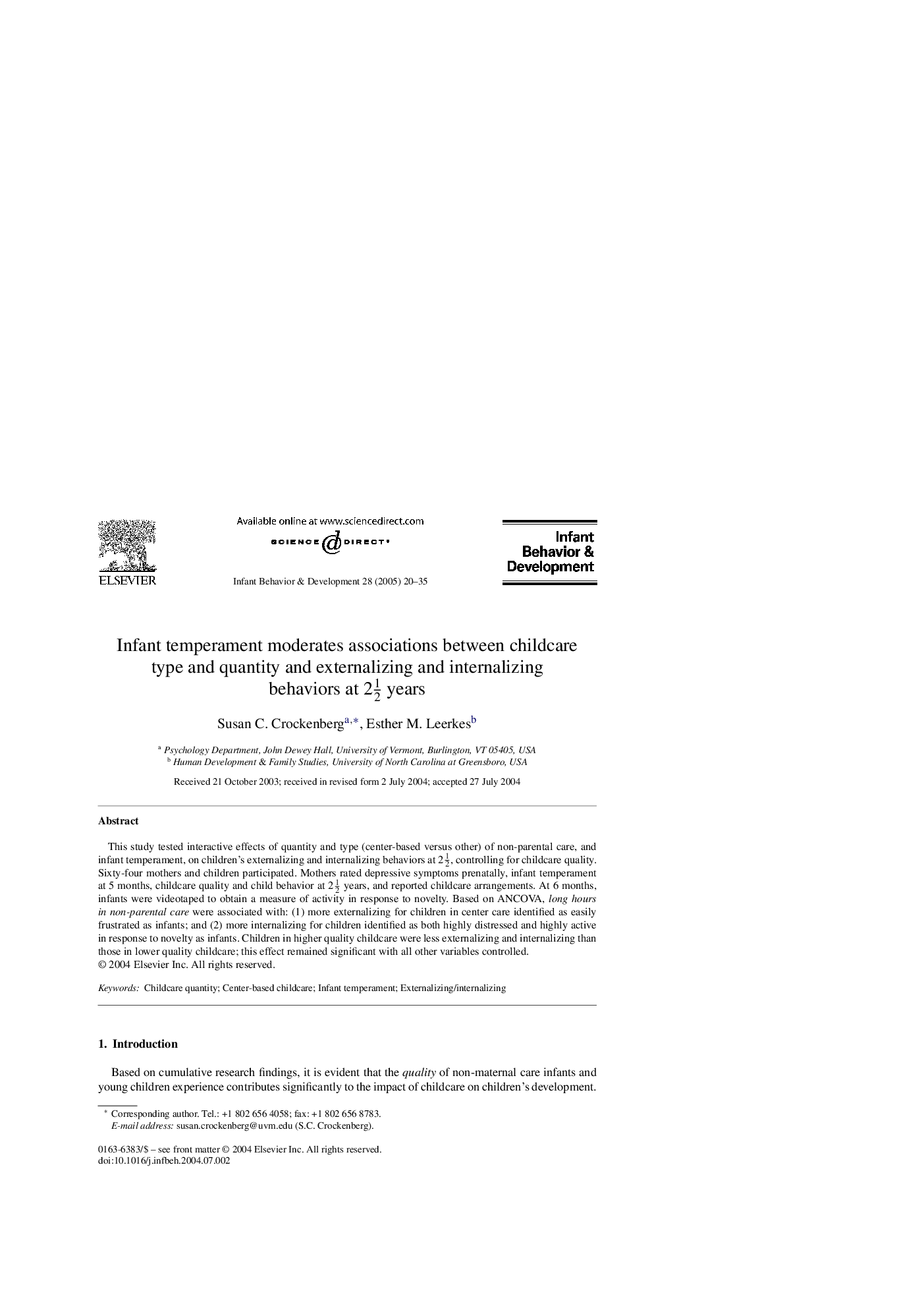| Article ID | Journal | Published Year | Pages | File Type |
|---|---|---|---|---|
| 10452912 | Infant Behavior and Development | 2005 | 16 Pages |
Abstract
This study tested interactive effects of quantity and type (center-based versus other) of non-parental care, and infant temperament, on children's externalizing and internalizing behaviors at 212, controlling for childcare quality. Sixty-four mothers and children participated. Mothers rated depressive symptoms prenatally, infant temperament at 5 months, childcare quality and child behavior at 212 years, and reported childcare arrangements. At 6 months, infants were videotaped to obtain a measure of activity in response to novelty. Based on ANCOVA, long hours in non-parental care were associated with: (1) more externalizing for children in center care identified as easily frustrated as infants; and (2) more internalizing for children identified as both highly distressed and highly active in response to novelty as infants. Children in higher quality childcare were less externalizing and internalizing than those in lower quality childcare; this effect remained significant with all other variables controlled.
Keywords
Related Topics
Life Sciences
Neuroscience
Behavioral Neuroscience
Authors
Susan C. Crockenberg, Esther M. Leerkes,
